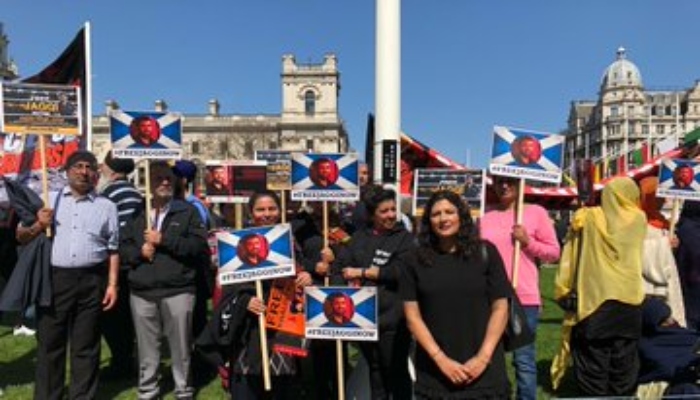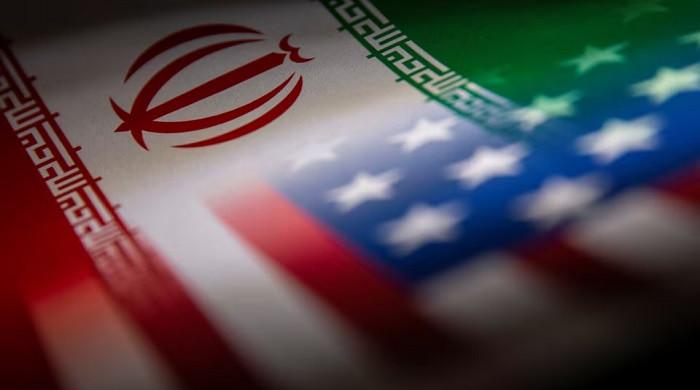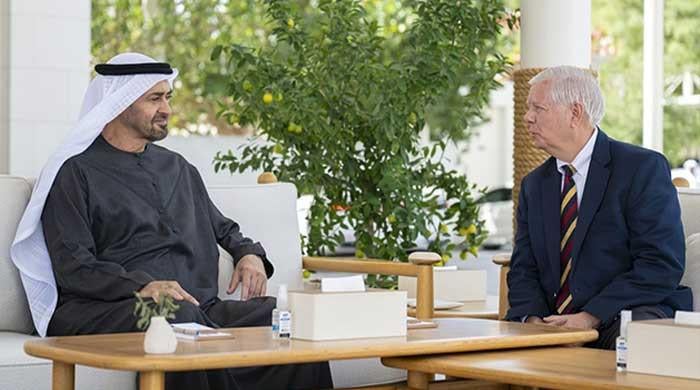Tory peer accused of working against Sikh rights to please Hindutva BJP
Another UK Sikh MP responds by saying the demand of Sikhs for Khalistan is protected in the UN charter
August 08, 2020

LONDON: Britain’s leading Sikh group, the Sikh Federation, has accused Conservative peer Lord Raminder Ranger of working for the interests of Hindutva and the Bhartiya Janata Party-led Indian government at the cost of Sikhs' rights and demands.
The Sikh Federation intervened after a row broke out on social media between the first Sikh female Member of Parliament and Shadow International Development Secretary Preet Kaur Gill and the Conservative Party’s Lord Raminder Ranger.
In a tweet, Rami Ranger claimed that British Prime Minister Boris Johnson didn’t support Khalistan.
He wrote: "Today, I spoke with the British Prime Minister, the Rt. Hon. Boris Johnson MP who categorically assured me that British Govt does not support Khalistan movement. Thank you PM."
Responding to his claim, Labour MP Preet Kaul Gill wrote in reference to the demands of Sikhs for a separate homeland of Khalistan that “the principle of self-determination is prominently embodied in Article I of the Charter of the United Nations”.
The honourable Member of Parliament from Birmingham Edgbaston added: “It is positioned as the first right in the twin Human Rights Covenants (the International Covenant on Civil and Political Rights [ICCPR] and [ICESCR].”
Gill further clarified that even if Boris Johnson made this claim, he was not above the law. She said: "Not sure what your referring to. I for one am very concerned about the divisive nature of your tweets. The PM is not above the law and it’s clear you don’t understand human rights or the principles of the UN declaration."
The Sikh community in the UK has responded with a lot of anger against the statement made by Lord Ranger since he implied that the Prime Minister and, in essence, the British Government did not believe in the right of self-determination of the Sikh community.
Criticising this statement, the Sikh Federation of the UK lashed out at Lord Ranger in a public statement which stated: "This guy (Lord Ranger) is the biggest joke & embarrassment in UK politics! Complete Government of India (GOI) chamcha & a laughing stock in the @Conservatives! Self Determination is a basic human right enshrined in international law & article 1 of the @unitednations charter!".
Preet Gill MP further asked Lord Rami Ranger if he had ever raised his voice for the kidnapped Sikh activist Jagtar 'Jaggi' Singh Johal.
Lord Rami Ranger didn’t respond, but hundreds of Sikh activists joined the debate and called for the release of Jaggi from an Indian prison. The Scottish national Sikh blogger has now been held by Indian authorities for nearly 1,000 days over alleged involvement in the killings of right-wing Hindu leaders and the funding of a now-proscribed group. The police arrested him while he was visiting India.
Preet Gill has been praised by young Sikh activists for raising her voice for the release of Jaggi – a popular demand amongst nearly two-million diaspora Sikhs in UK, Europe, Canada and USA.
Hours earlier, Britain’s first turban wearing Sikh MP Tanmanjeet Singh Dhesi expressed support for the people of occupied Kashmir by praising an article on the plight of Kashmiris by famous Indian writer Arundhati Roy, published in The Guardian on August 5 – a year after Modi regime revoked Article 370.
While sharing the link, the MP from Slough said: "A very hard hitting, fascinating and thought provoking piece by renowned Indian author Arundhati Roy, weaving geopolitical considerations into what’s happening on the ground. Well worth a read. What you see isn’t always what’s actually there."
The Khalistan movement is a Sikh nationalist movement for an independent homeland for Sikhs arising in the aftermath of systematic discrimination against the Sikh community in India. The movement was at its peak in the 1980s, but has continued to inspire Sikhs in India and across the world to strive for an independent homeland, free from the Indian government.












